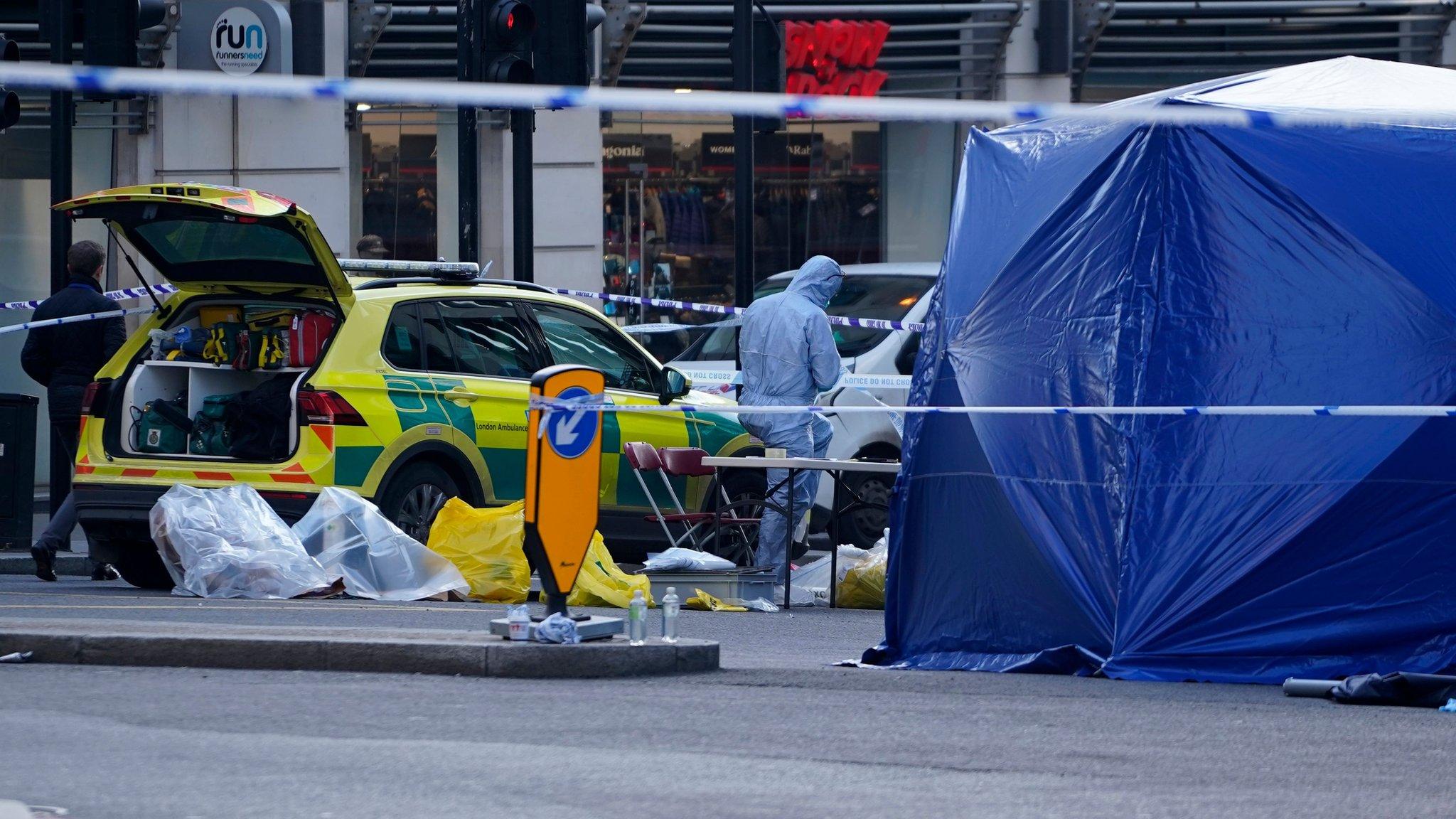London Bridge: Parties row over attacker's early release
- Published
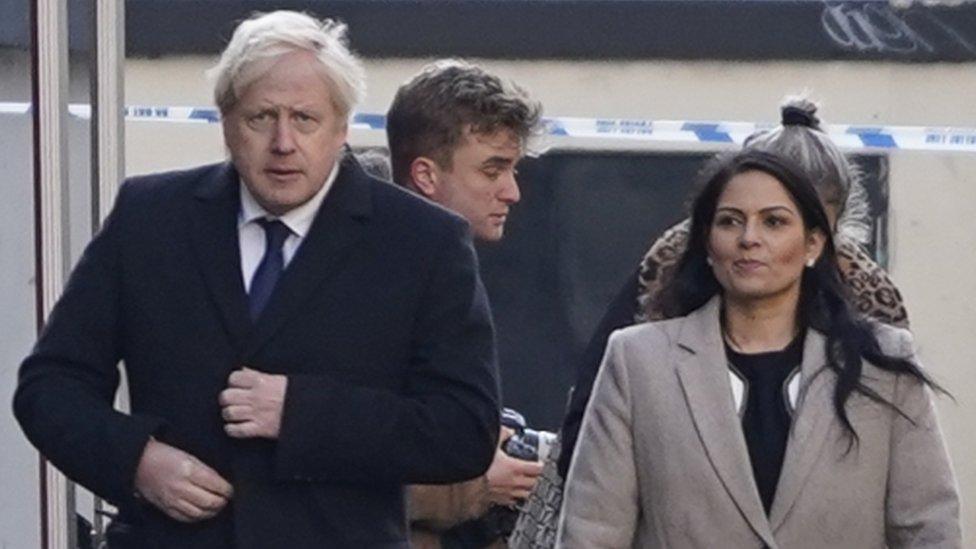
Prime Minister Boris Johnson and Home Secretary Priti Patel visited the scene at London Bridge
A row has erupted between the home secretary and a former government minister over the early release of the London Bridge attacker, Usman Khan.
Khan, who was released from prison on licence in December 2018, was shot dead by police during Friday's attack.
Labour's Yvette Cooper said the government were "warned about the risks" of ending Imprisonment for Public Protection (IPP).
But Priti Patel blamed legislation brought in by Labour in 2008.
The IPP regime, which was brought in by the then Home Secretary David Blunkett to protect the public from dangerous prisoners, was scrapped by the coalition government in 2012.
In a series of tweets, external, Ms Cooper, shadow home secretary from 2011-2015, said the government was "warned" about the risks of ending IPPs citing a "lack of resources for probation, monitoring and rehabilitation".
The home secretary responded to Ms Cooper on Twitter, saying the law was changed "to end Labour's automatic release policy".
Ms Patel added that Khan was convicted before the Labour legislation was changed by the Tories in 2012.
Allow X content?
This article contains content provided by X. We ask for your permission before anything is loaded, as they may be using cookies and other technologies. You may want to read X’s cookie policy, external and privacy policy, external before accepting. To view this content choose ‘accept and continue’.
The row comes after Ms Patel joined Prime Minister Boris Johnson at London Bridge where two people were killed by Khan on Friday.
Khan, 28, was convicted of a terrorism offence in 2012. He was released from prison in December last year, after agreeing to wear an electronic tag.
Visiting the site of Friday's stabbings, the PM vowed to "toughen up sentences".
Mr Johnson said: "I've said for a long time now, that I think the practice of automatic, early release where we cut a sentence in half and let really serious and violent offenders out early, simply isn't working.
"And I think you've had some very good evidence of how that isn't working, I'm afraid, with this case," he added.
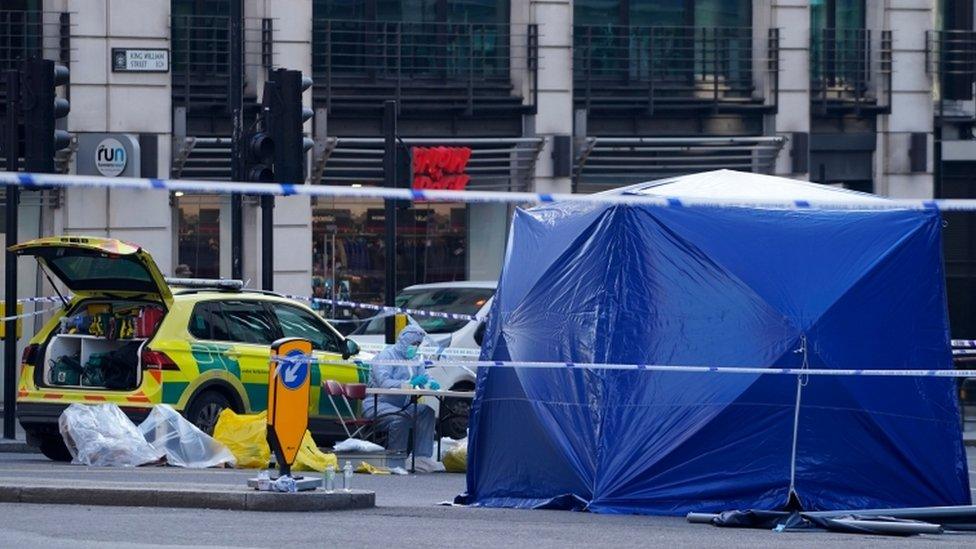
Two people were killed in the attack and another three were taken to hospital for stab injuries
Labour leader Jeremy Corbyn said there were questions to be answered.
"I think there is also a question about what the Probation Office were doing - were they involved at all?
"Whether the Parole Board should have been involved in deciding whether or not he should have been allowed to be released from prison in the first place, and also what happened in prison?"
The Parole Board said it had no involvement in the 28-year-old's release, saying Khan "appears to have been released automatically on licence (as required by law)".
Ms Patel backed up the Parole Board's comments, with a tweet claiming they "could not be involved" in the decision to release Khan because of Labour's change to the law in 2008.
Allow X content?
This article contains content provided by X. We ask for your permission before anything is loaded, as they may be using cookies and other technologies. You may want to read X’s cookie policy, external and privacy policy, external before accepting. To view this content choose ‘accept and continue’.
In 2012, Khan was sentenced to indeterminate detention for "public protection" with a minimum jail term of eight years after being convicted for his part in a plot to bomb the London Stock Exchange.
This sentence would have allowed him to be kept in prison beyond the minimum term.
But in 2013, the Court of Appeal quashed the sentence, replacing it with a 16-year-fixed term of which Khan should serve half in prison. He was released on licence in December 2018.
Khan was living in Stafford and wearing a GPS police tag when he launched his attack on Friday, in which a man and a woman were killed and three others were injured.
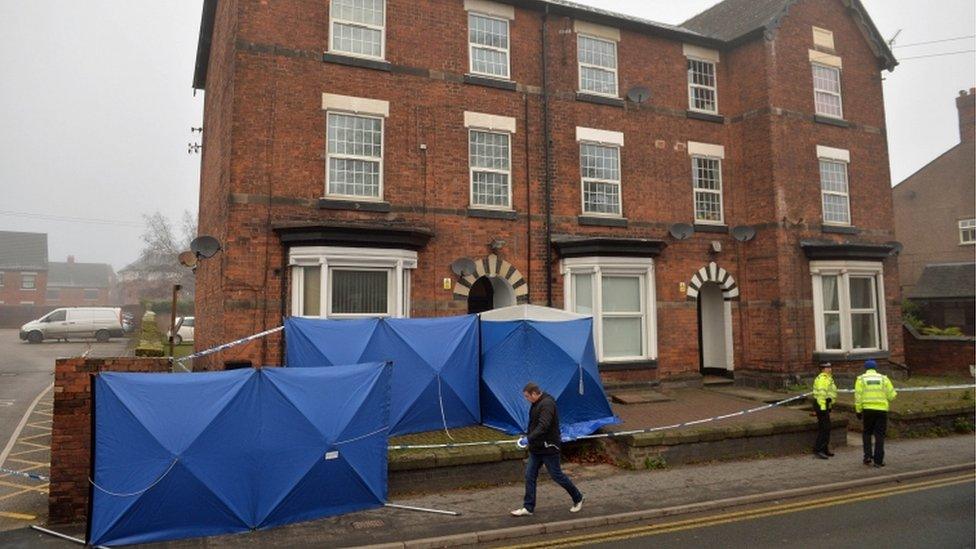
A house in Stafford linked to Usman Khan has been searched by officers
As part of his release conditions, Khan was obliged to take part in the government's desistance and disengagement programme - the purpose of which is the rehabilitation of people who have been involved in terrorism.
Friday's attack started inside Fishmongers' Hall where the 28-year-old was attending a rehabilitation event for convicted prisoners run by the University of Cambridge.
'Money tree'
Former chief crown prosecutor Nazir Afzal said he repeatedly warned Mr Johnson of the risk posed by convicted terrorists being released from prison while still radicalised.
Mr Afzal said: "He asked me what keeps me awake at night and I told him it was this issue.
"When he wanted to know what to do about it, I told him it was more resources for one-to-one de-radicalisation.
"Back then, he hadn't found the 'money tree' so he frustratingly said there was no money."
The Prime Minister said: "A great deal of working is being done to make sure the public is protected."
- Published29 November 2019
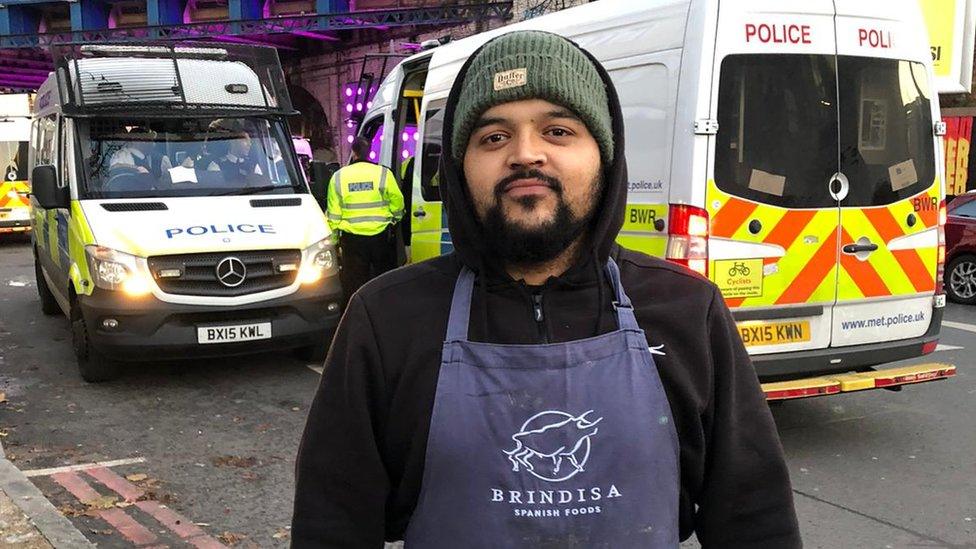
- Published5 December 2019
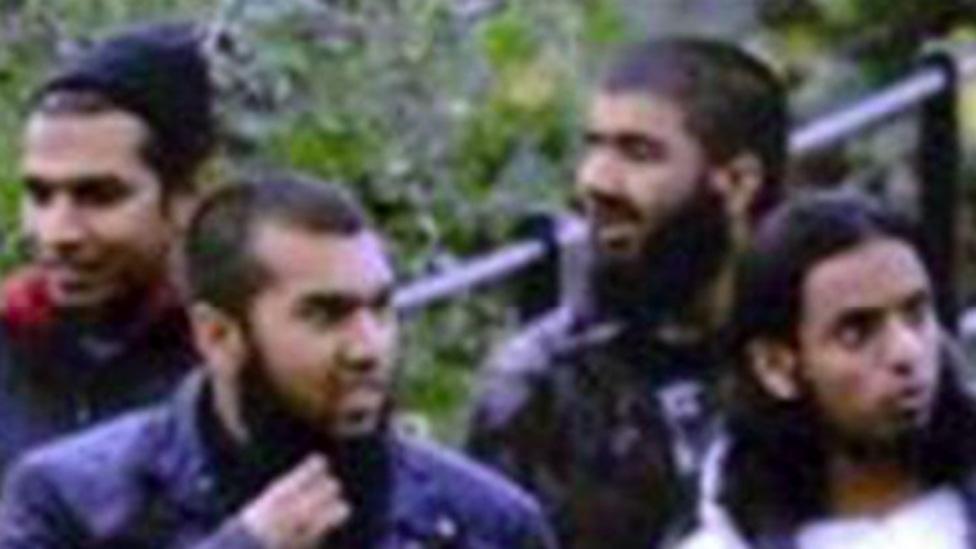
- Published29 November 2019
